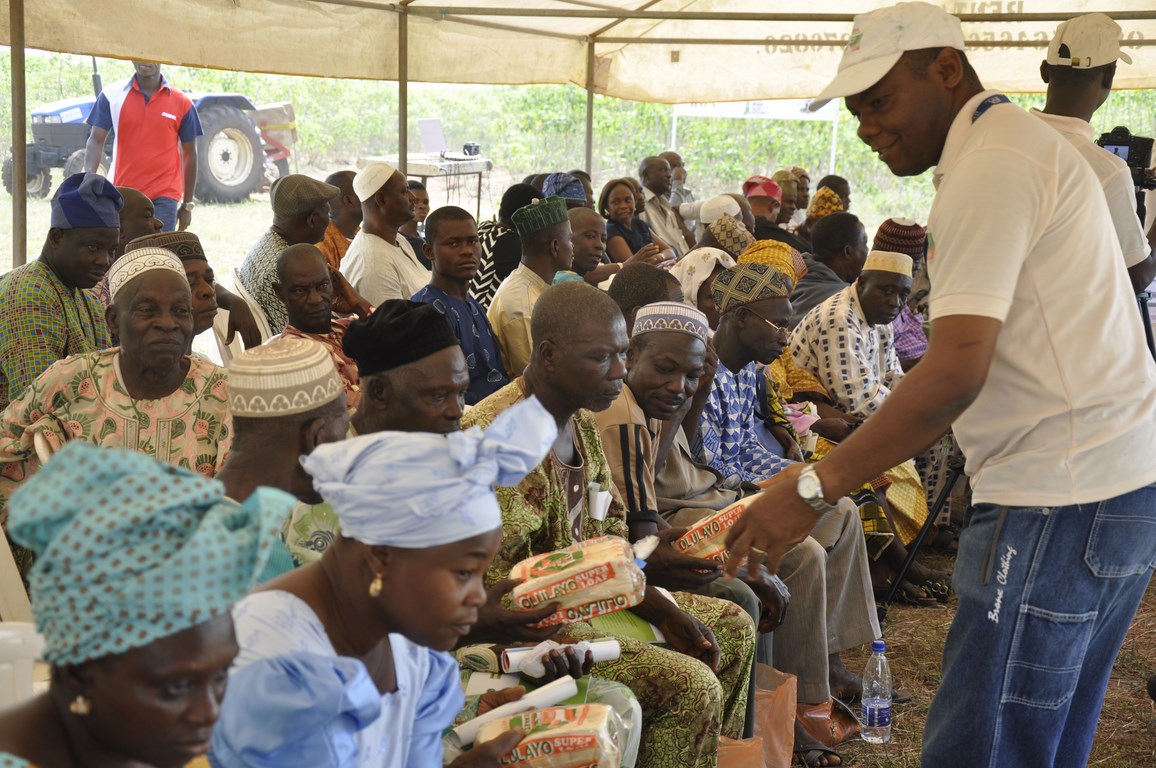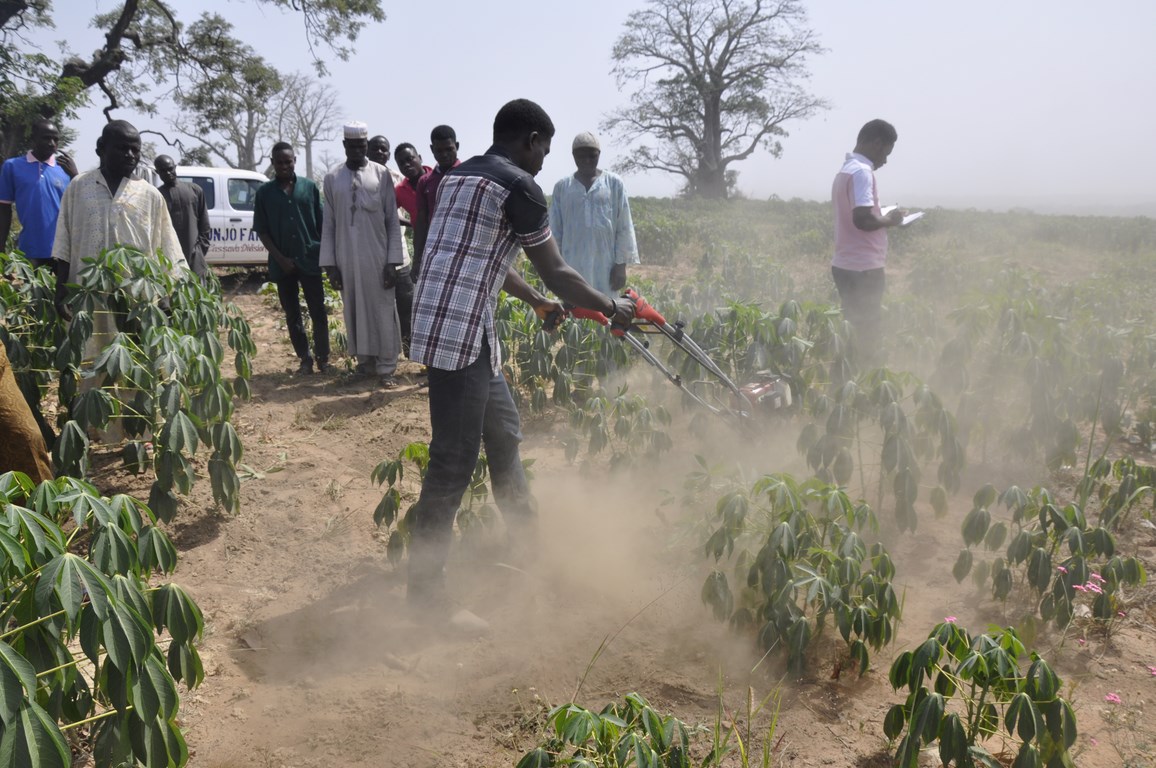The IFAD/IITA HQCF Value chain project organized a field day at Ijoga-Orile on 8 December 2015, bringing together HQCF master bakers, extension agents, farmers, financial institutions, input suppliers, local machine fabricators, marketers, nutritionists, processors, researchers, transporters, youth, and students. The event was hosted by project partner Open Door International Ltd.
More than 120 project and non-project farmers participated in the field day. The field day aimed to allow project farmers and non-project farmers to participate and witness the harvesting of the demo farm planted at Ijoga-Orile; bring together all actors in the value chain at Ijoga-Orile and foster a business-oriented sustainable platform; and finally say thank you to the community for welcoming the project and Open Door to Ijoga-Orile.
“The result of profitable cassava production is what we are witnessing today,” said Alhaji Aderemi Mohammed, CEO and Director of Open Door International, who encouraged other farmers within the environs of Ijoga-Orile to work with the project and his processing factory. He said he is ready to procure all cassava roots that the farmers produce.
Various farm inputs were on display, such as herbicides and improved cassava stems; also 10% HQCF/wheat bread was given to participants.
During the feedback session, community representatives called for more field days and expressed thanks to IITA for introducing a cassava variety that was able to withstand the dry season conditions and produce a bumper harvest, which they witnessed. One of the youth and a project beneficiary, who spoke on behalf of the other youths, appreciated the effort of the Project for the training they acquired on mechanical planting, farm management, and weed control.
Kehinde Adegbola, a non-project farmer, expressed his surprise at the cassava varieties the project introduced and the bountiful yield. He said he wondered if cassava can be easily harvested irrespective of the dry season. “I can say categorically that the cassava business has been made easy and is now more profitable than before.”
The IFAD/IITA/HQCF Value Chain Project Coordinator, Alenkhe Bamidele, in his closing remarks thanked the community for their warm acceptance of the project and advised all participants to take advantage of all the useful products that the project had introduced within the 12 months of working in Ijoga-Orile. He also urged all actors along the value chain to work together, exploiting existing business opportunities that can be generated within the platform as members of the Ijoga-Orile innovation platform.
…Young cassava farmers and outgrowers of Arogunjo Farm Limited, in Kwara State, Nigeria, were given a cassava weeding machine last December 2015 to ease the back-breaking work of removing weeds from their fields. The machine was donated by the IFAD/IITA High Quality Cassava Flour (HQCF) Project in collaboration with the IITA Cassava Weed management project.
During the presentation of the machine, over 20 youths and outgrowers including women, were trained were trained on how to use the machine. Bamidele Alenkhe, IFAD/IITA HQCF Project coordinator, advised the youth to maintain the machine properly and also tasked the recipients to appoint a custodian of the machine.
The training highlighted the efficiency, maintenance, and guidelines in the use of the weeder to avoid destroying cassava stems. IITA weed management technician Uchenna Ifeanyi Ene skillfully demonstrated the use of the weeder to uproot the weeds without harming the cassava, and let the training participants try using the machine.
The participants expressed awe at seeing such a machine that could remove weeds growing between cassava plants.
Abdul-Rasaque Alabi, one of the youths, said that the machine was easy to handle. “This machine is very easy to use. If I have the opportunity of buying one, I can plant more cassava on my farm and get very good yields at harvest time, because I know from experience that weeds disturb the root quality of our cassava.”
Another youth, Sadu Jimoh, said that IITA should provide more machines and create further awareness about the weeder because it makes farming easier for the farmers. “If farmers like me can be given this machine for free, and combined with the training that IITA has given me on land preparation and the use of improved cassava varieties, then my productivity will increase year in, year out.
The training and demonstration did not hinder women from participating, Catherine Imola and Mariam Olaoye also tried their hand using the machine. After the demonstration Imola said “I like the machine. I handled it easily, without stress; with this women’s participation in farming will increase and and we will not wait for men to help us uproot weeds in our farm again.” On the other hand, Olaoye said the machine was a little heavy for her to handle. “Manufacturers should make provision for smaller or lighter machines. If I see something that is a little smaller; I will be fine with it,” she said.



No Comments